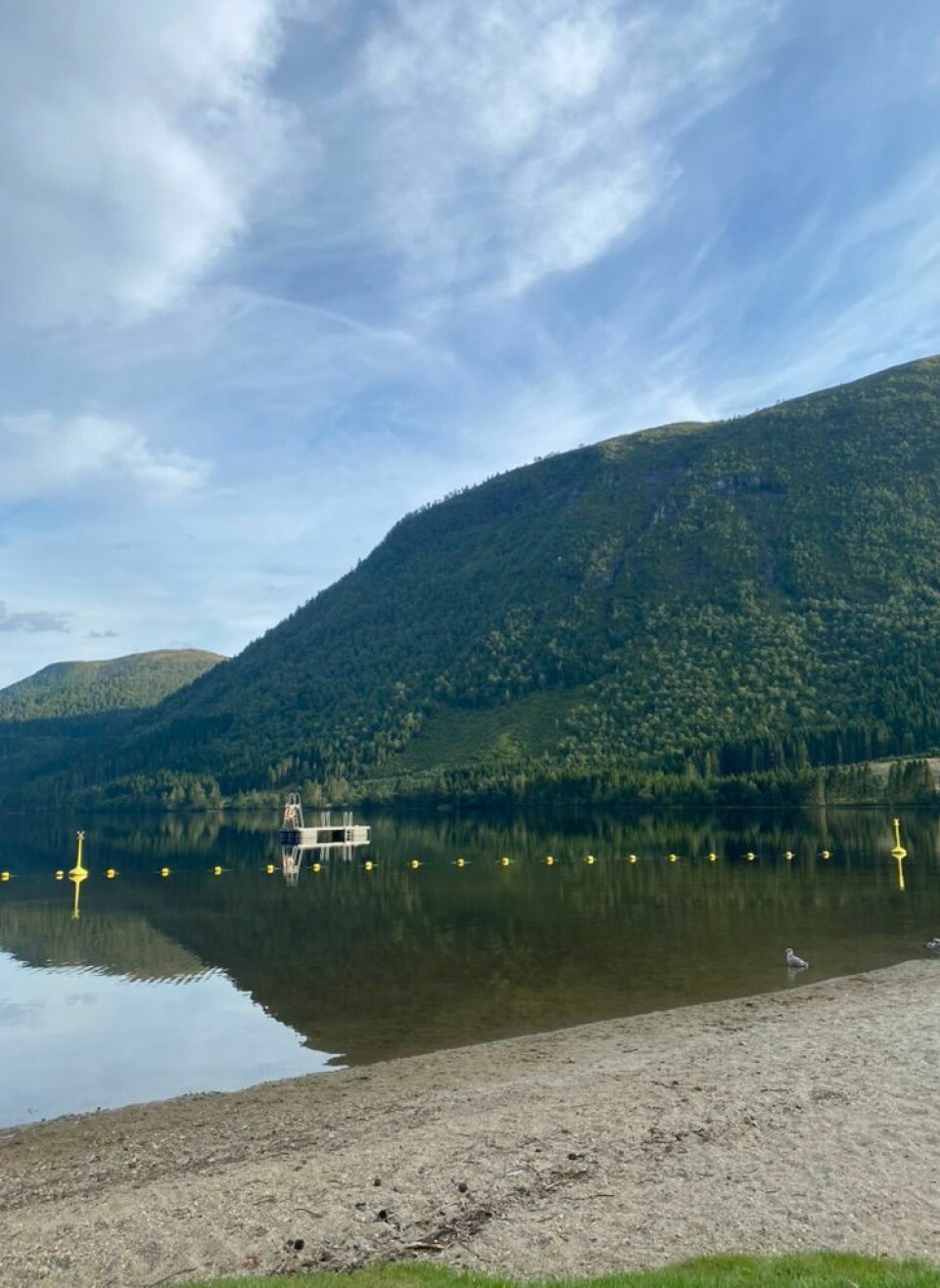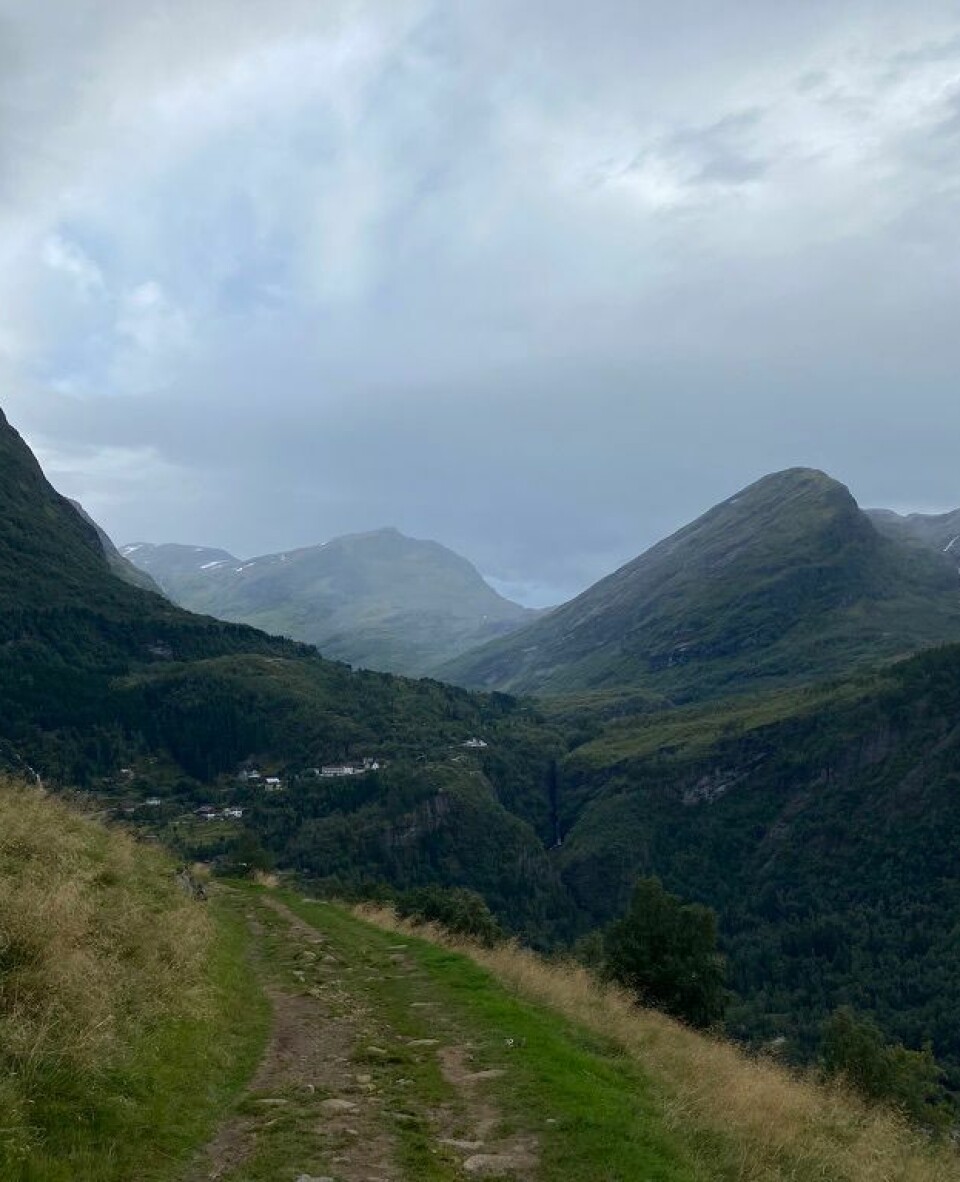
GROUNDHOG DAY IN NORWEGIAN
Remember when you couldn’t stop staring at the mountains? When Grandiosa felt exotic and a trip to Kiwi was an adventure? Now your toothbrush lives permanently in the same cup, the fjords barely catch your eye—and what was once exciting has become routine. But is that really a bad thing? And how can we learn to see the familiar with fresh eyes again?
Raise your hand if this sounds familiar: You wake up in the morning in your room in a student residence in Volda, go to the bathroom, take your toothbrush out of the cup provided for this purpose and brush your teeth. Then you want to have breakfast and take eggs from the door shelf of the fridge and butter from the second compartment. After breakfast, you go to the university, attend lectures, go shopping and return home without even consciously glancing at the mountains.

Okay, I think we are all aware that some people may not keep their toothbrush in a cup but in a bag, or that the butter is in the first compartment rather than the second. The point is: You've slowly got used to Norway and developed routines. It's normal to wake up not in your own bed, but on a mattress in Porse or Heltne that has more springs than cotton. At first, being surrounded by mountains was unimaginably beautiful and new. You couldn't take your eyes off them. But now they're just part of the big picture. They're still beautiful, but you no longer marvel at their presence. Your entire gallery is full of them, and your family and friends have now realised from the various photos on WhatsApp, Snapchat or BeReal that you're in Norway. They've got used to it too.
But... is that a bad thing?
Very little that happens in our minds happens by chance. Developing habits and routines, for example, is essential for coping with everyday life. Our brains are designed to develop routines and automatic responses in order to conserve resources. For example in everyday life, this is important when you go shopping. Imagine if you had to compare the ingredients and prices of different types of cheese every time. No, you just pick the cheese you already know you like and that won't burn a hole in your pocket. Otherwise, you'd spend at least 10 minutes standing in front of the cheese shelf and people would slowly start to wonder what's wrong with you. Far too exhausting! We rely on habits.

The day I realised that I had become accustomed to nature was the day I took a trip to the Geiranger Fjord. It's pretty much the biggest tourist hotspot in the area. After climbing the mountain for almost two hours and finally reaching the top, where I had a great view of the fjord and the surrounding area, I thought to myself: Okay, it's just a fjord. It doesn't look that different from everything else in Norway. Water, rocks, green spaces. Psychology has a complicated name for this: hedonic adaptation. I don't want to bore you, so I'll keep it short: A certain level of happiness hormones causes enthusiasm to become normal, and you are constantly searching for something new that will trigger this release.
Is it possible to escape this habit? Science has provided some guidelines for this:
1. Recognise triggers and needs
When you are bored (trigger), you look for distraction (need). So far, so simple.
2. Find alternatives
By definition, alternatives are other possibilities besides the normal. So the next time you are hiking through the beautiful Norwegian countryside and realise that it is boring you, take a different route. Look around and lose yourself in the things that seem strange or new to you and take a closer look at them.
3. Accept setbacks
You don't have to discover new things every day. That would be exhausting. Sometimes it's perfectly okay to just stay in your room and watch nature from the window.
What does all this mean in summary? Developing routines and suddenly finding things boring is the most normal thing in the world. When you get up in the morning completely creased to go to Visual Communication II or Norwegian Literature from the 19th Century, you don't want to have to think about where your toothbrush is today. It's just where it's supposed to be: In the cup. However, if you want to break out of your routine, there are ways to do so. Take a different route than the one you take every day, buy different products than the ones you are used to, or change your morning routine. Even if the changes are minor, they can make all the difference!
I'll leave you with a task: The next time you walk through Volda, do so with the eyes of a tourist. Pretend it's your first time here. As silly as it may sound, a different perspective can transform the world around you from black and white to colourful.









